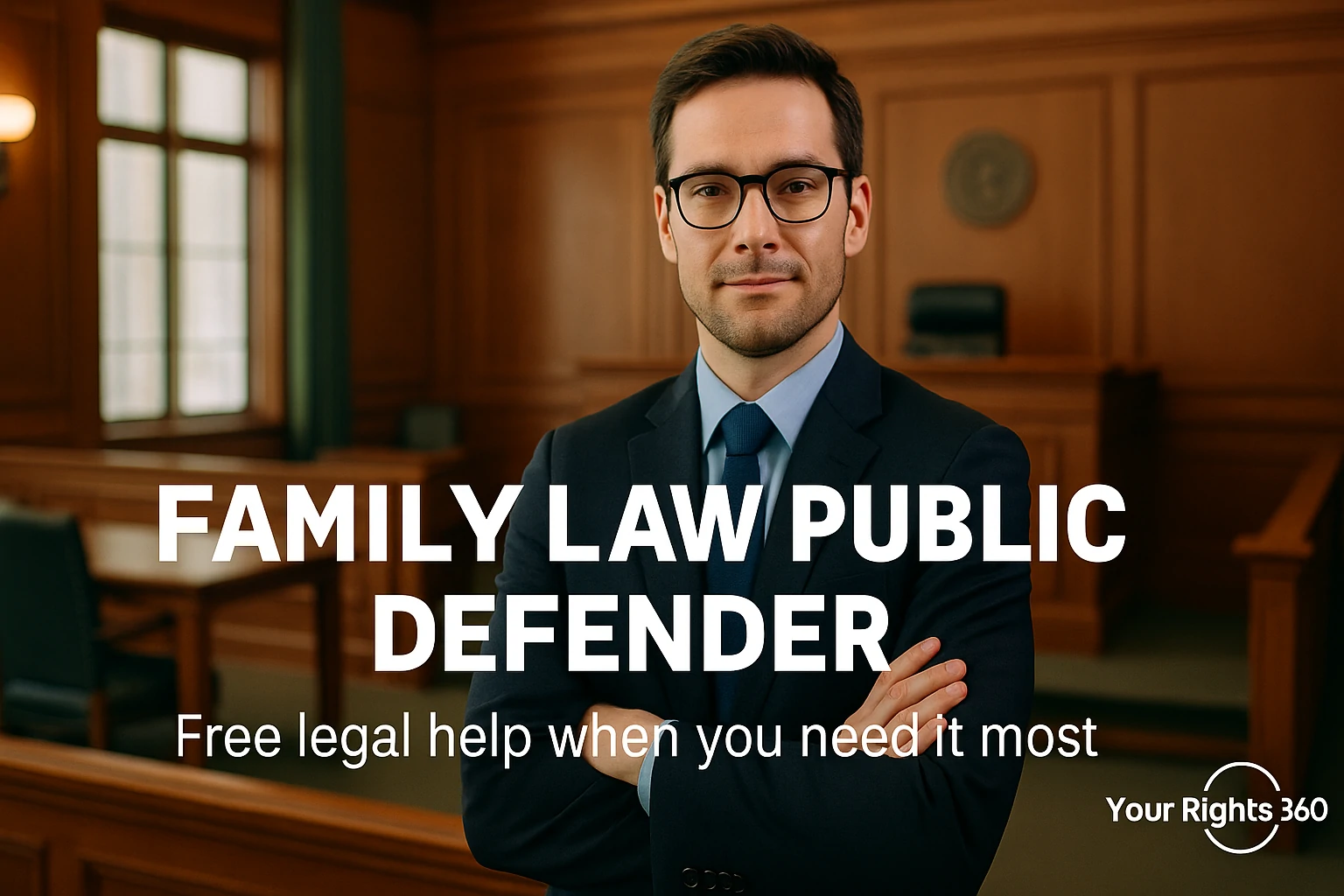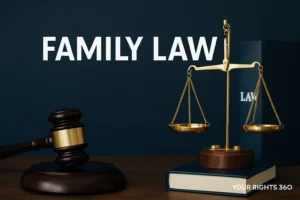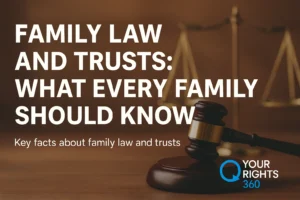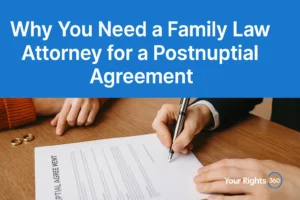Family problems can turn into legal issues fast. A divorce, a custody fight, or abuse at home can shake up your life. These cases bring stress, confusion, and high costs. Not everyone can afford a private lawyer. But the law gives people another option. That option is a family law public defender.
This type of lawyer steps in when someone cannot pay for legal help. The court assigns them to protect your rights and help you through the legal process. You do not have to face family court alone just because money is tight. A public defender can fight for your interests.
Many people think public defenders only work on criminal matters. That is not always the case. Some counties and states allow them to help with family law issues too. These include child custody, domestic violence, or when the court may take away a child. A public defender can stand beside you in court during these difficult times.
This guide explains how a family law public defender can support you. It covers what they do, who qualifies, and what to expect in court. If your case feels stressful or unclear, this article gives you clear steps. You will understand your rights and know where to turn for help.
What Is a Family Law Public Defender?
A family law public defender is a lawyer who helps people in family court cases. The court appoints this lawyer when someone cannot afford to hire one. Their job is to defend that person’s rights under the law.
These lawyers do not work to earn profit. They serve the public. Their job is to make sure the court treats you fairly. They hear your side, prepare your case, and speak in court for you. This support can change how your case ends.
Some public defenders work full-time for the state or county. Others work on contract or part-time. But their duty stays the same. They must protect your legal rights. They cannot ignore your case or treat it as less important.
In some places, the public defender only steps in for criminal charges. In others, they help with family law too. These laws change by state and by county. You should ask the court clerk or legal aid center in your area to find out.
Types of Family Law Cases They Handle
A public defender does not take every family case. They focus on cases where serious rights are at risk. These often include:
- Child Protective Services (CPS) cases: When the state tries to remove children from a home.
- Juvenile dependency: When a child faces harm or neglect.
- Domestic violence hearings: When someone seeks or fights a restraining order.
- Termination of parental rights: When the state wants to end a parent’s rights permanently.
- Guardianship: When the court must decide who should raise a child.
These are serious matters. The court must allow fair legal help before making big decisions. If you face this kind of case and do not have a lawyer, the judge may assign one to you.
How to Qualify for a Public Defender
You must meet two main tests to get a family law public defender. First, your case must be the type that qualifies. Second, you must show financial need.
The court needs proof before giving you a public defender. You must fill out forms and show your income. Some courts also check your bank accounts or property. They need to see that you truly cannot pay a private lawyer.
You must ask for a public defender at your first court date. If you wait too long, the judge may not allow it. Speak to the court clerk early. Ask how to apply and what forms you need.
If the court denies your request, you still have options. Many legal aid groups help people with low income. Some lawyers also take cases for free through pro bono work. You can still get support, even without a public defender.
Check out our Waco, Texas family law attorneys page for experienced legal help.
What a Family Law Public Defender Does
A public defender handles many parts of your case. They start with a meeting to hear your side. They read the court papers and ask you questions. They look at all the facts. After that, they build a plan to help you in court.
They speak in court for you. They question witnesses, talk to the judge, and challenge the other side. They also help with legal forms and deadlines. Family court rules are strict. One mistake can hurt your case. A good lawyer knows how to avoid those traps.
Public defenders do more than speak in court. They can also try to solve the case without a trial. They may talk to the other side’s lawyer and try to reach a fair deal. This can save you time and money.
Your lawyer will explain each step clearly. They will prepare you for what comes next. Their support helps you stay focused and make the right choices during tough times.
Benefits of a Family Law Public Defender
The biggest benefit is clear. You get a trained lawyer at no cost. That alone helps many people. But there are other reasons why public defenders matter.
Public defenders understand the court system. They see the same judges, clerks, and lawyers often. That local knowledge helps your case move without delays.
They also know family law well. Each state has different rules. A public defender keeps up with the laws and court steps.
Most of all, they stand up for you. Without a lawyer, you may feel lost. The court may not hear your side. A public defender makes sure your voice counts.
Limits of a Public Defender in Family Law
A public defender is not always the perfect answer. They handle many cases. They often have full schedules and limited time. You may not get long meetings or fast answers.
Some people feel the lawyer does not fight hard enough. Others want more control over the case. If you want to choose your lawyer or direct the plan, you may prefer to hire someone yourself.
Also, you cannot get a public defender in every family law matter. If you want a divorce or to fight for child support, you usually must find your own lawyer. Public defenders only step in when the law says you face a real loss of rights.
Still, for the cases they do take, public defenders offer real support. They make sure the court follows the rules. They protect your legal standing.
How to Work With a Public Defender
Treat your public defender like you would a private lawyer. Be honest. Share all facts, even the bad ones. Your lawyer cannot help you without the full story.
Show up to meetings. Follow advice. Keep copies of court papers. Ask questions when you do not understand something.
Do not talk about your case with others. What you tell your lawyer is private. But what you say to friends or post online may hurt you. Let your lawyer do the talking in court.
If you feel unhappy with your public defender, speak up. Some places let you ask for a new lawyer. But you must give a strong reason. You cannot switch just because you dislike their style.
Other Legal Help If You Do Not Qualify
If you do not meet the rules for a public defender, you still have choices. Many states offer free legal clinics. You can talk to a lawyer for advice, even if they do not take your full case.
Law schools often run legal aid programs. Students help clients under a licensed lawyer’s eye. These programs handle family cases often.
You can also search for non-profit legal aid groups. They may help with custody, abuse, or divorce if you meet their rules.
Some private lawyers also take pro bono cases. That means they offer free help to people who need it most.
Why Family Law Needs Fair Legal Help
Family law touches the most personal parts of life. It decides where children live, who keeps a home, or how to protect against harm. These are not small issues.
People with money often hire top lawyers. Without a public defender, poor people would face court alone. That leads to unfair outcomes. A public defender gives balance.
The law should work for everyone. Not just the rich. A family law public defender helps keep the system fair.
Family court is hard. Emotions run high. The rules feel cold. If you face child removal, domestic violence, or loss of rights, you need a strong voice in court. A family law public defender can be that voice.
These lawyers step in when you cannot afford one. They work to protect your rights. They guide you through a legal maze. They stand up when it matters most.
Know your rights. Ask the court if you qualify. Use the help you get. And stay informed. A public defender can change the outcome of your case and give you peace in a storm.
If you do not qualify, seek other free help. You do not need to walk this path alone. Legal aid exists. The system may be tough, but it is not closed to you. Reach out. Ask questions. Take action. That first step can bring the support you need.
Legal Help FAQs
Q. Who can get a family law public defender?
People with low income who face serious family court matters may qualify. The court checks your income, property, and case type. If your rights as a parent are at risk, the court may give you a lawyer.
Q. Do public defenders handle divorce or child support?
Most public defenders do not take those cases. They step in when someone may lose custody, face abuse claims, or deal with guardianship. Other issues may need help from legal aid or a private lawyer.
Q. How do I ask the court for a public defender?
You must speak up at your first hearing. The judge may ask questions about your income and give you a form. Ask the court clerk where to apply and what steps to follow.
Q. What happens if I do not qualify?
You still have other options. Many groups offer free or low-cost help. These include legal aid clinics, law school programs, and pro bono lawyers.
Q. Can I trust a public defender with my case?
Public defenders take their job seriously. They understand family law and court rules. They speak up for you, explain your choices, and try to protect your rights.
Q. What helps my public defender do a better job?
Be honest and clear about your case. Go to all court dates. Follow your lawyer’s advice and stay in touch. Your effort makes their job easier and your case stronger.
You might also consider consulting a family law paralegal for supportive legal services.




